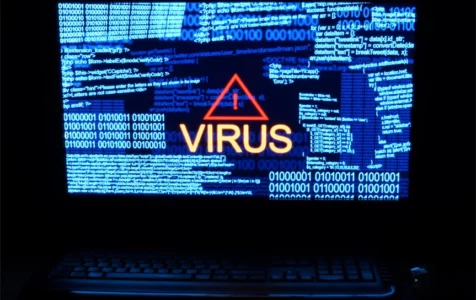Over the past few years, hackers have accessed billions of data records, and the problem will only continue to get worse as time goes on. Cyber attacks are accomplished through the use of phishing scams, email spam, and taking advantage of weak encryption. In order to avoid getting viruses and malware, you will need to remain vigilant. We’ve come up with a few tips that you can follow to keep your devices safe.
Install Antivirus Software and Keep it Updated
One of the most important things that you can do is install antivirus software on your computer to create a type of shield from malware. Ideally, it would help if you had business-grade antivirus software, but there are also free versions available that can help. Make sure that you pick a reputable security software and that it is able to perform frequent scans for malware.
Another aspect of this is keeping the software updated. This is a crucial step that some people forget to do, which allows viruses to infect their computers. New viruses are being developed every day, and the updates contain signature files that protect against them. If your security software is not aware of the latest threats, it will be easy for them to sneak into your computer.
Avoid Unfamiliar Emails
If you receive an email from an unknown sender, be very wary. A common way for hackers to spread viruses and malware is through email scams. If it looks suspicious at all, or if the email requests personal information, delete it right away. Do not open any attachments that are included in the email. As well, disable image previews from your email software. You should do this because viruses can attach to images, which automatically install as soon as you open the email.
Even if you recognize the sender, be careful about opening attachments right away. Your friend or colleague may have had their computer hacked and are unknowingly spreading around a virus. Before opening any email attachment, scan it with your security software first, so that you know it is safe. Outlook and Gmail both ask permission before downloading attachments, which is helpful in case you forget to scan it first.
Block Ads
Malicious ads, called ‘malvertisements’, are embedded into websites and can harm your computer. These files are distributed within the advertisement networks of legitimate advertisers. If the advertiser does not distinguish the harmful files from the regular ones, they will approve it, and it will post to a website. Many of these ads will encourage viewers to click to buy or donate to a good cause. When the viewer does so, malware will download onto their computer, which could compromise all of their files and personal information.
If you are wondering how to block ads, install an ad blocker on your computer. If you are using Chrome, you can use the pre-built settings in the browser. To do this, follow the steps below:
- Open Google Chrome
- Click the three vertical dots in the top right-hand corner to open the menu
- Click settings
- Scroll down and click advanced at the very bottom of the page
- Click site settings under ‘privacy and security’
- Click on ‘additional content settings’ and then click on the ads section
- Press the toggle button so that it says “Blocked on sites that show intrusive or misleading ads”
Make Sure You Are on a Secure Website
If you need to make a purchase online, make sure that you are doing it from a trusted website. One way you can make sure of this is by checking the URL of the site. If the URL starts with “https”, and there is a closed lock icon to the left of the address bar, you will know it is secure. To be safe, try to avoid having websites remember any personal information about you such as phone numbers, credit card numbers, and passwords.
If you are about to enter a website and you get a message warning you that the site may contain malware, exit immediately. Your search engine will usually backlist certain websites that are not safe to visit, and the site will not show up in your query.
Use Secure Passwords
In order to keep your online accounts safe and avoid falling victim to a phishing scam, it is important to use strong passwords. Use at least eight characters in your passwords and include a combination of capitals, numbers, and special symbols. Easy passwords can be guessed too easily or hacked by computer programs. It is recommended to use a different password for each account and change them every three months at a minimum. If you suspect that you have entered your password on a fake login page, change it immediately. Then you should carefully monitor the activity in your accounts for a few weeks to ensure that everything has remained secure.
